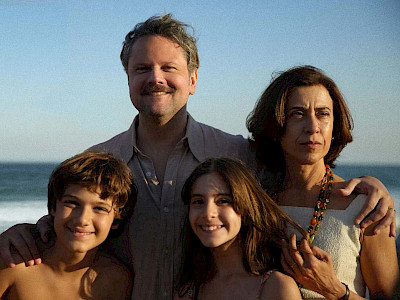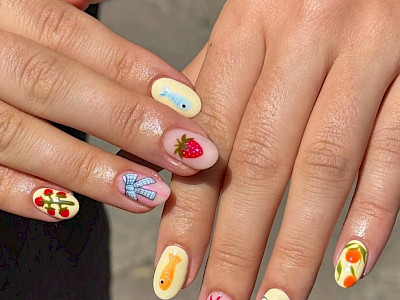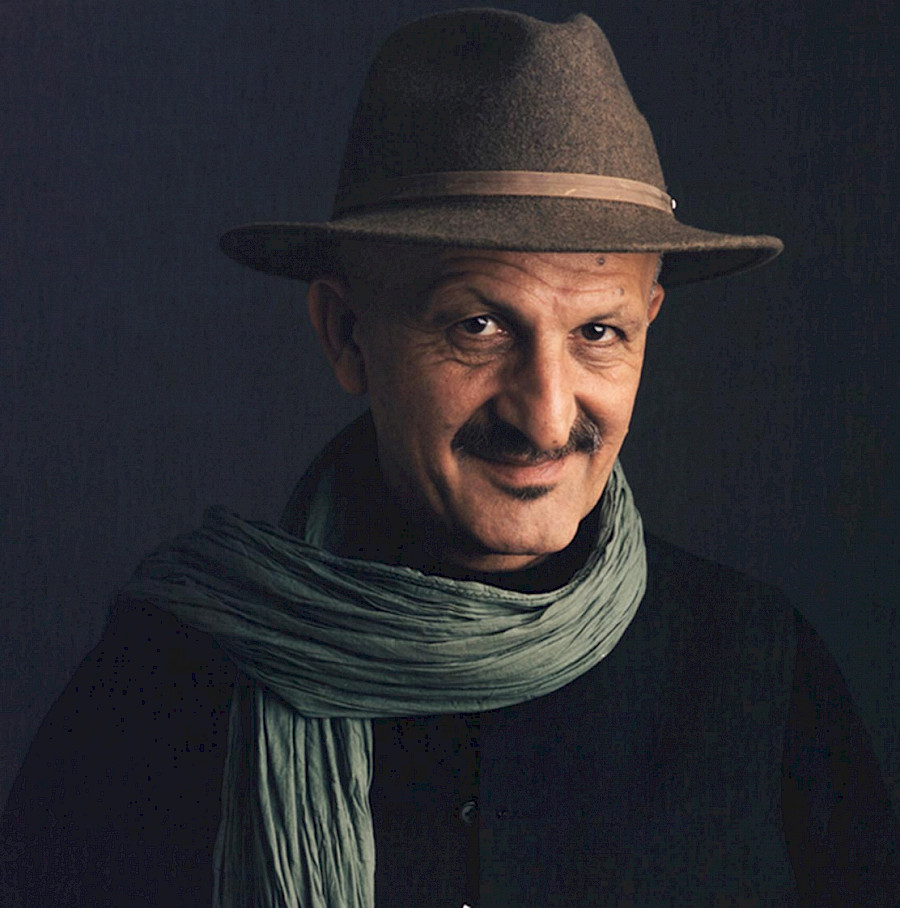
I spent over 38 years surrounded by human misery. And I continue to work. Because all people are interconnected: if one suffers, it will concern others too. In zones of conflict and hostilities, in the refugee camps, poverty and suffering are reigning, humiliating humans. And I want not only to help those who need it, but also to convey to those who live in contentment that they have no right to remain indifferent when another part of humanity is experiencing tragedy after tragedy. After all, it can happen to anyone. And everyone is responsible not only for himself and his family, but also for the entire globe.
We must share everything we know and have.
So a native of Tabriz, Iranian Azeri Reza Deghati became one of the most effective peacekeepers: his scream from the heart was picked up by National Geographic and Time, his pictures are issued by thematic albums, honored with prestigious awards, exhibited in museums and galleries ... But fame does not console you when every day dozens of eyes look full of unquenchable pain.
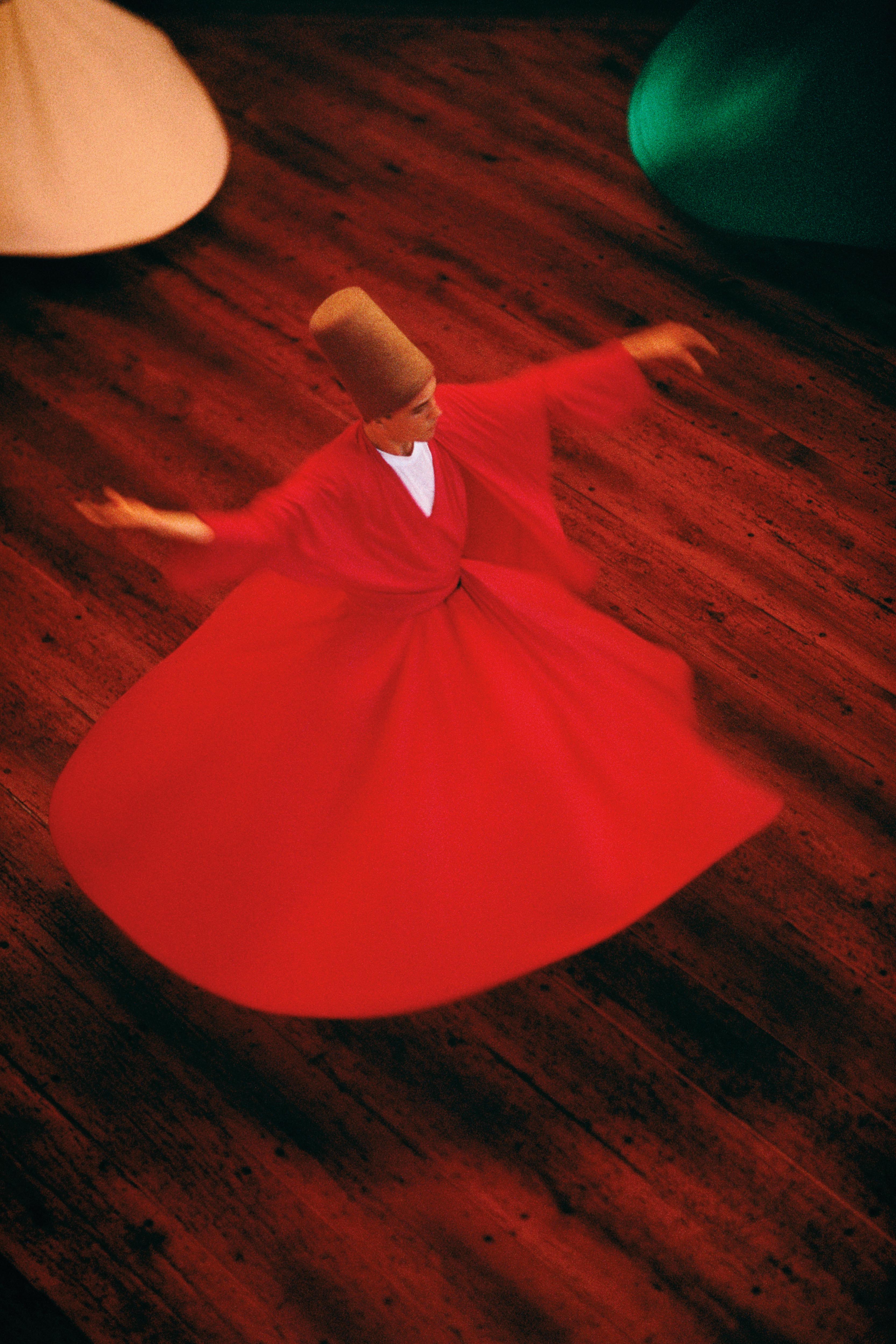
Voice. Turkey, Istanbul. 1993
Word on the city walls shows the way to anyone who knows how to see it. The walls convey a mysterious call: “Come.” At every step I read and seem to hear a muffled echo of the voice of someone who leads me: "Come ... Come" ... And I follow this unexpected game. I am floating freely with the poetry of words. I'm looking for her, waiting for her at every corner ...And suddenly the garden door opens in a traditional style, studded with mossy, silent testimonies of past times.
We are in the school of the dervishes of Mevlana Rumi, the Sufi philosopher. He is there - drawn to infinity, to the rhythm of divine spells, circling in a mystical dance, with one hand raised to the sky and the other extended to the earth, as if a living message to God: "We are a node in the energy circulation between earth and sky" .
You once said that Sufi poets — Rumi, Ferdowsi — help you confront oppressive reality ...
I read not only Sufi poetry. We are all weaved of nerves, and I spend most of my time among people who are suffering a lot, and anyone in my place would be shocked by what he saw. So I got a remedy for emotional burnout: for me, this is poetry, the highest form of creative thought, one of the greatest arts that man has ever invented. The way to perfect the soul is what poetry is to me. Sufis also wrote about the value of every human being. Humanism is one of their main ideas. Sufism is all about the fact that we are all one and that there are no differences between man and man, faith and faith. I believe it too.
When the Pulitzer Prize winner Kevin Carter took his famous snapshot of an emaciated child, to whom a vulture was approaching, a barrage of accusations of ... inhumanity fell upon him. Our profession poses a moral choice every day: take a valuable snapshot, which may go down in history, or provide assistance - here and now ...
People do not know what remains behind the scenes. It may seem that there was no one other than a photographer, and since he did not let go of the camera, he did not help. In fact, all photojournalists have one goal - to help people, bringing their voices to others. Kevin was one of these photojournalists, which is why he took this picture. As for me, on the battlefield, face to face with the war, my first priority is to be alert to take pictures that tell the truth. Perhaps even most of what is happening, I capture in my own memory.
I remember how happy I was when the autofocus cameras appeared: such a device brings focus when I see nothing of tears. And I continue to shoot, at least until I see that people in the frame need my physical help, my hands. Sometimes there is no one to help but me.
And how do people in hot spots treat a person with a camera?
If you just aim the lens at a person on the street, he will most likely ask: “Why are you taking pictures of me?”. It is necessary to understand people so as not to offend anyone inadvertently.
We must make sure that they accept the fact of your presence, understand that this is your work. But when it comes to demonstrations, conflict zones, etc., that is a different story.
Over all these years, I have noticed that representatives of the authorities, management of companies or political groups do not like to get into the frame.
So, they know that they are doing poorly, they are ashamed of their actions and do not want anyone to see it. Photojournalists are pursued, their cameras are broken ... I myself have been in this situation more than once.
I was arrested, beaten. All this was done by separate groups of people who, obviously, had something to hide. Otherwise, why would anyone fear a photographer? Ordinary people are not afraid. Of course, if they are not convinced that it is a spy who can harm their country.
So it happened that you were in grave danger?
I always take risks, but the risk is intentional. The photojournalist must always be at the front, in the center of events, he must have all the information in order to be in the right place at the right time. Of course, one cannot do without intuition.
Unfortunately, the press staff are most often attacked. I always knew what was going on. A hundred times I closed my eyes and thought: here they are, the last minutes of my life ... Bombs exploded, bullets whistled, but every time I miraculously stayed alive.
There was a lot of trouble between the belligerents, when they blindly bombed everything ... In Sarajevo, I was driving, knowing that I could be kidnapped by Serbian groups that did not want to let journalists into the city. Many times the Russian military sent people to grab me in the mountains of Afghanistan. It was impossible to relax for a minute, so as not to let yourself be fooled. Of course, a photojournalist should have a good technique, a keen eye and a sense of color, but he should also be able to get information, to find out the causes of what is happening.
Check whether reliable information is provided to you,not to let on the wrong track ... And this is not enough. A photographer should put all his soul into what he does: only this way one can understand what is going on around him. And if this is a zone of active hostilities, then you absolutely can’t panic - in a panic you lose control of yourself and not only can you not work, but also you risk to suffer by throwing yourself where it’s not necessary.
You need to constantly remind yourself of this and try to remain as neutral as possible ...
Do you manage to maintain neutrality when the situation affects you personally?
Every person I met, every story I covered was personal to me. I see no difference between African, Afghan or Azerbaijani mothers who mourn the death of their sons. Of course, belonging to a particular region allows you to better understand what is happening in it. But this does not mean that the photojournalist has the right to look at the situation one-sidedly: his duty is to look at the events not as a participant, but as a representative of all mankind. Try to understand all the conflicting parties - and therefore, understand yourself, because without understanding the essence of what is happening there can be no self-expression. You can not shoot something you do not understand. In Karabakh, during the war, I constantly reminded myself: “I am here first of all as a photojournalist!”. Our profession has its own ethics.
When it comes to my native land, I try to be even more careful in conveying the facts so that no one can accuse me of bias.
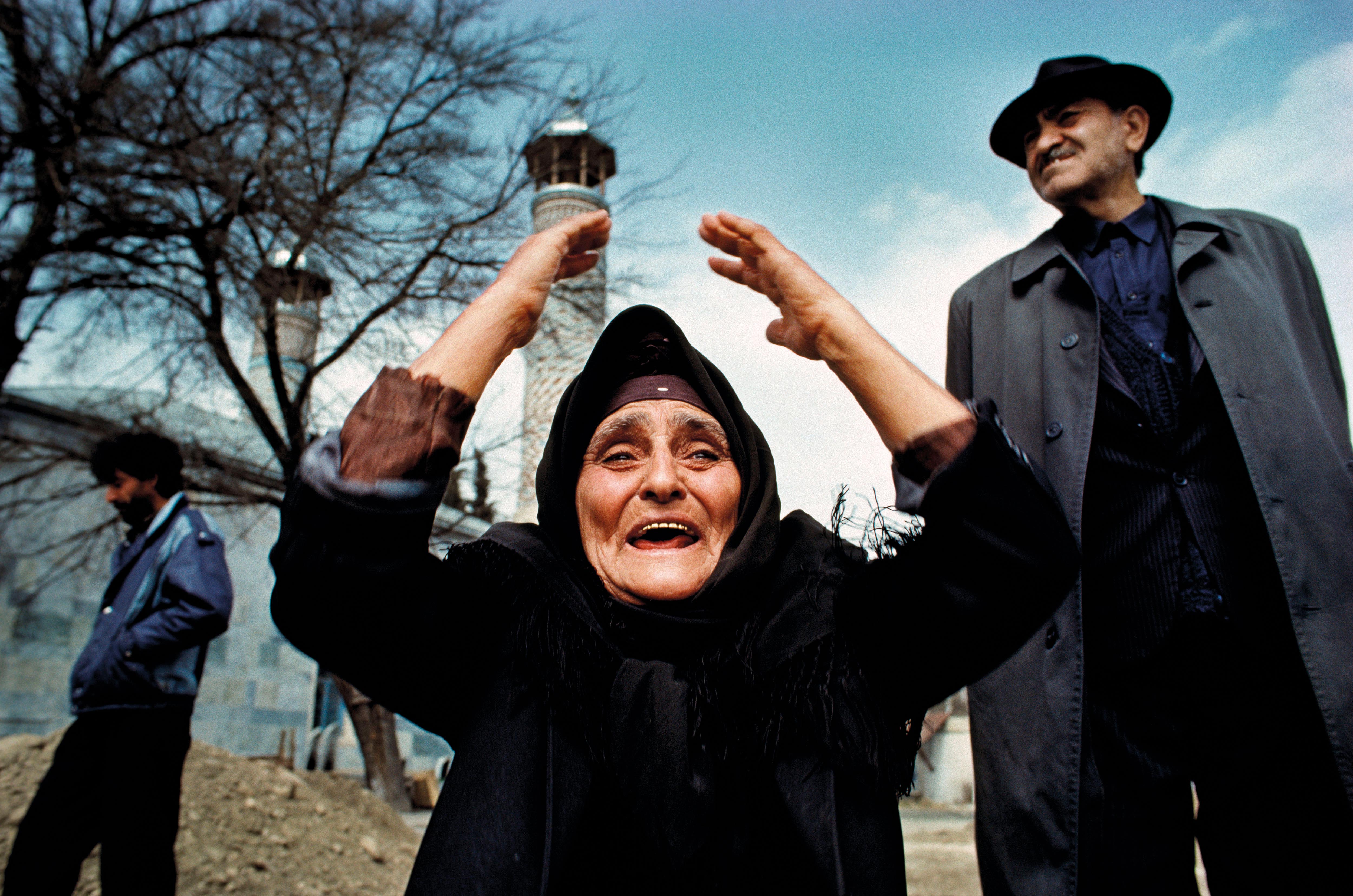
Scream. Azerbaijan, 1992
The town of Khojaly became a place of massacre perpetrated by Armenian troops in February 1992. Only a few of the townspeople escaped the massacre. And those who survived, went to the morgue of the city of Agdam in search of the disappeared members of their families, making their way between dozens of corpses wrapped in white plastic cases.
Slowly, they carefully studied each person, one after another, revealing the atrocities of the Armenian warriors ...
This woman in the picture just found her son and husband. According to the doctor who helped her in her search, his eyes were torn alive.
I still have the unbearable agony of her sobs in my ears ...
So can a photograph claim unconditional objectivity?
The path to objectivity begins with the choice of point of view.
Much depends on which camera is used, which lenses, at what angle. Already choosing at what angle to shoot, automatically makes one an interpreter.
Choosing what to shoot, you choose a point of view ... In this sense, there is no need to talk about objectivity. The camera is not a copy machine, and even that does not repeat the original exactly. To be objective in our profession means to show as much as possible so that the “picture is formed”, while trying to honestly convey how you see the situation.
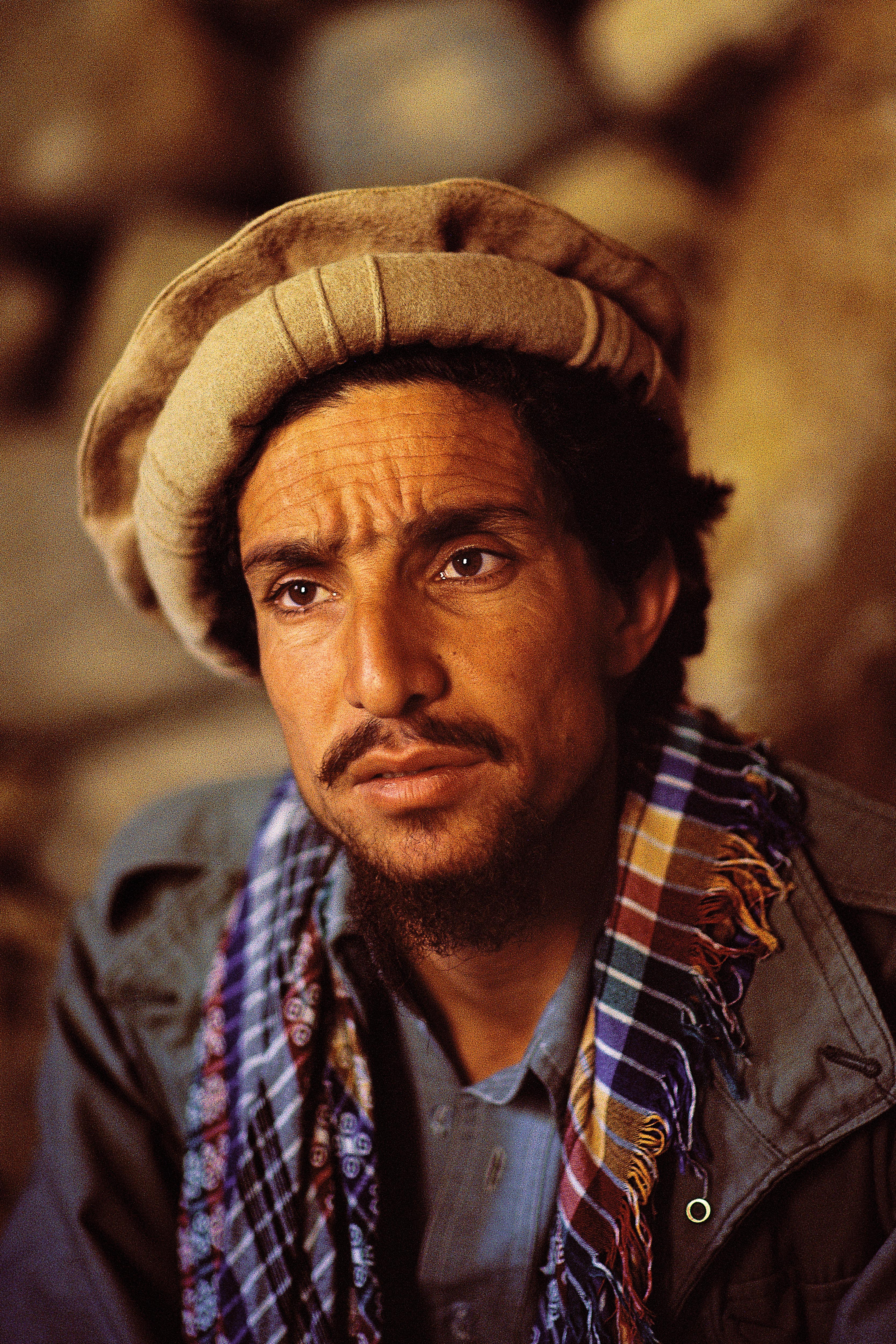
Unconquered. Afghanistan, Panjshir Province. 1985
Commander Massoud, leader of the Taliban - Afghan resistance against Russians until 1989 and later.
Initially, there was a face-to-face clash in 1985, then a glimpse of mutual recognition: a game of chess in the Panjshir Valley, handshakes, hugs, arguments, and a promise to meet again ... These are seventeen years of attacks, spying, hot disputes and poetic verbal contests until dawn. This is access to liberated Kabul and a visit to the only enclave that still remained under the control of the Taliban. This is the memory of those peaceful dreams, longing for freedom and the duty to resist no matter what. This is the emptiness of his disappearance ... And, above all, it is a promise to a friend.
Well, what kind of image you have formed about current refugees from the countries of Eastern Europe? What awaits them in the near future?
Refugees don't flee on their own will, rather when their homeland is destroyed or it is not safe to live there. The reasons may be different: war, dictatorship, rejection of some ideas ... Many refugees, if asked, would call their desire to get an education and leading a safe life as the main reasons for their escape. I think many would be happy to return to their homeland. Yes, some refugees accept Christianity, because they are well-received in Christian society: they practically do not see paperwork, their health is taken care of at the state level. But this is not the main reason. They also leave the countries of the East because what is being done there supposedly in the name of Islam damages humanity, humanism, Islam itself at last.
How did this happen? After all, Islam is a peaceful religion ...
The word "Islam" itself means "peace." Salam is a wish for peace. But all religious books have one common feature: they can be read in different ways. Islamic fundamentalism is already an ideology, not a religion. Many fundamentalists, especially in the Middle East, are not very familiar with religion.
We live in a very difficult time when ideology uses faith to brainwash people and poach them to their side.
In addition, different fundamentalist groups use religious propaganda to fight each other. I saw fundamentalists of different religious movements, communicated with them ... All of them are smeared with one world: all are people who are convinced that they are doing the right thing and that religion can be used for their own purposes.
Who would actually want a war?
Let's ask ourselves who benefits from it. These are transnational companies that produce and supply weapons, receive investment contracts for the restoration of destroyed cities ... These are people from that one and only percent of the population of the Earth, who owns maximum money and power. Notice how some major powers have been enriched in the two years of the existence of the Islamic state! Many armies actually work for large companies. Look at Syria, Afghanistan, Iraq - and you will see large companies that benefit from the circumstances. Thanks to statistical studies, this can now be seen clearly.
Normal people do not need war. No one wants to see his house being bombed, his family killed ...
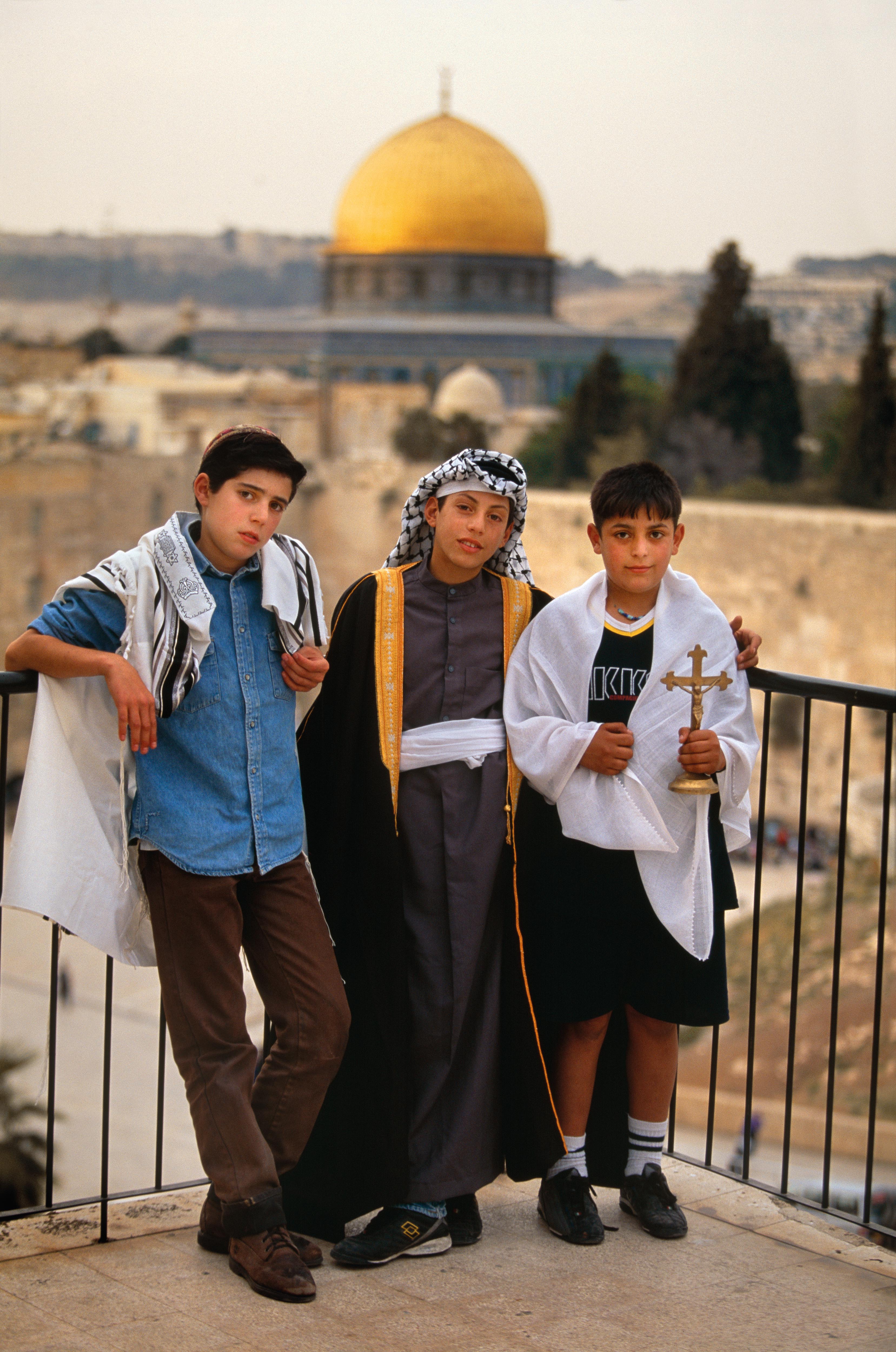
Long way in search of three Abraham
Very close to us is the land, which is home to Christians, Muslims and Jews. The land that is being torn apart and cannot be divided by the Israelis and the Palestinians. Children there are often brought up in hatred of each other in the name of their land. As the most ancient traditions say, Abraham was the forerunner of three religions, the father of children who are now ready to kill each other. I created a story about Abraham, his story, his wanderings and his will.
As a symbol of peace, I wanted to find three children of three religions: Abraham among Christians, Ibrahim among Muslims and Avraham among Jews. For a whole month I tried with great difficulty to find boys with such names, so as to bring them together. Meetings were constantly postponed: either because of religious holidays, or sometimes because of blocked roads, then because of the householder’s refusal to let a Palestinian child into his terrace ...Yes, this peaceful, idealistic idea, which I sought to put into practice, had to struggle through many obstacles before it could become a reality. One fine day, three children who have shared memories, a common homeland and a common father, but who are separated from each other, could reunite and meet. Ibrahim, Abraham and Avraham; It is time for a joint photo, we have revived the lost message of our Father about the world. Three children of Abraham - a Jew, a Muslim and a Christian - in front of the Dome of the Rock and the Wailing Wall. You should always be persistent, if you really strive to embody the symbol of the dream of peace.
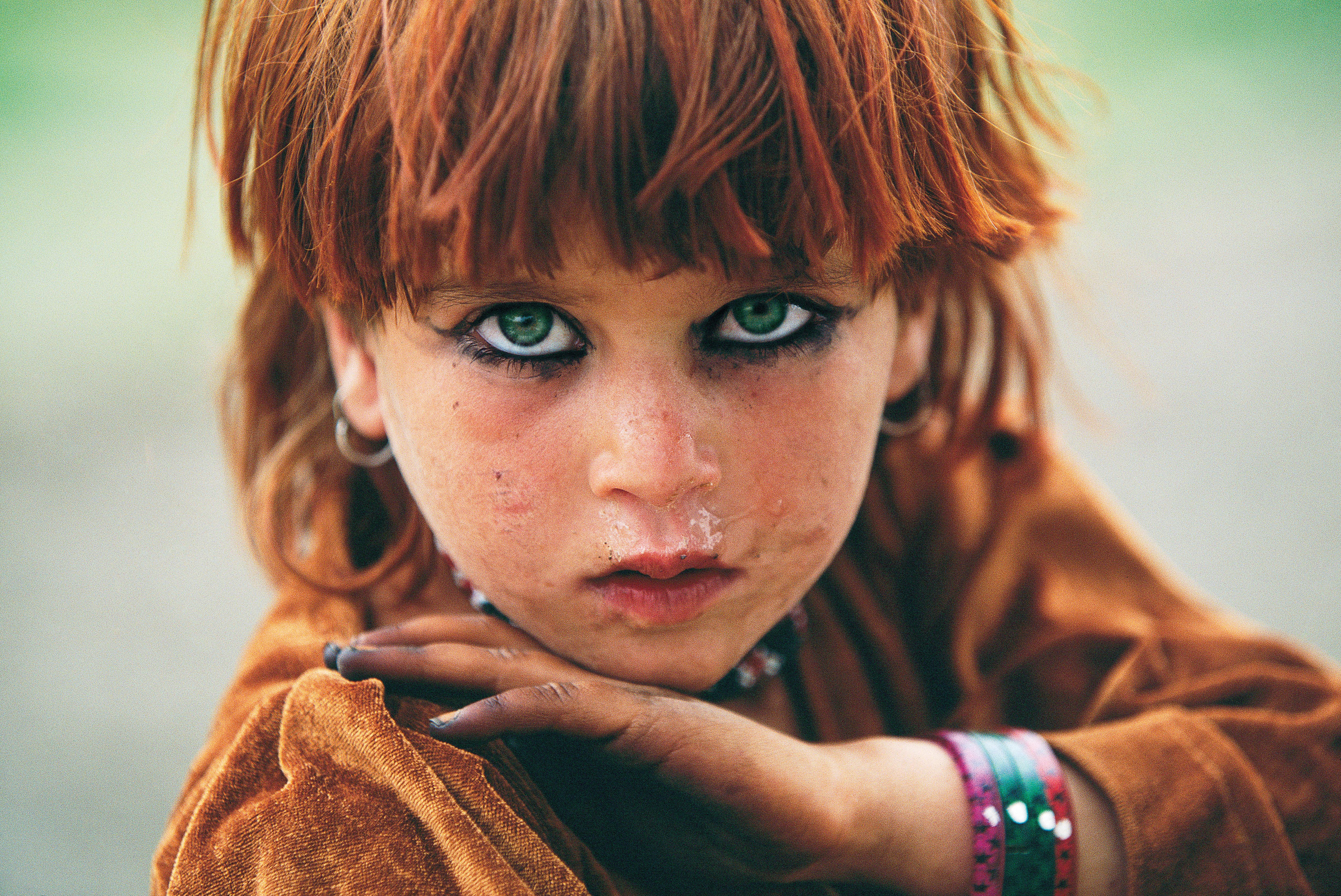
Afghanistan, Tora Bora village, 2004
It was one of my most dangerous assignments for National Geographic. I spent several months in the mountains along the border with Pakistan, wandering around the frontline villages, among the Taliban and the American special forces. One day, after spending a few hours on the road, I got to the village of Tora Bora. She was there, playing with other children. And suddenly she turned her face to me. I managed to take a few pictures. She was born and raised to the roar of the most brutal bombardments of her country. And the whole history of the Afghan war can be seen deep in the eyes of this innocent girl.
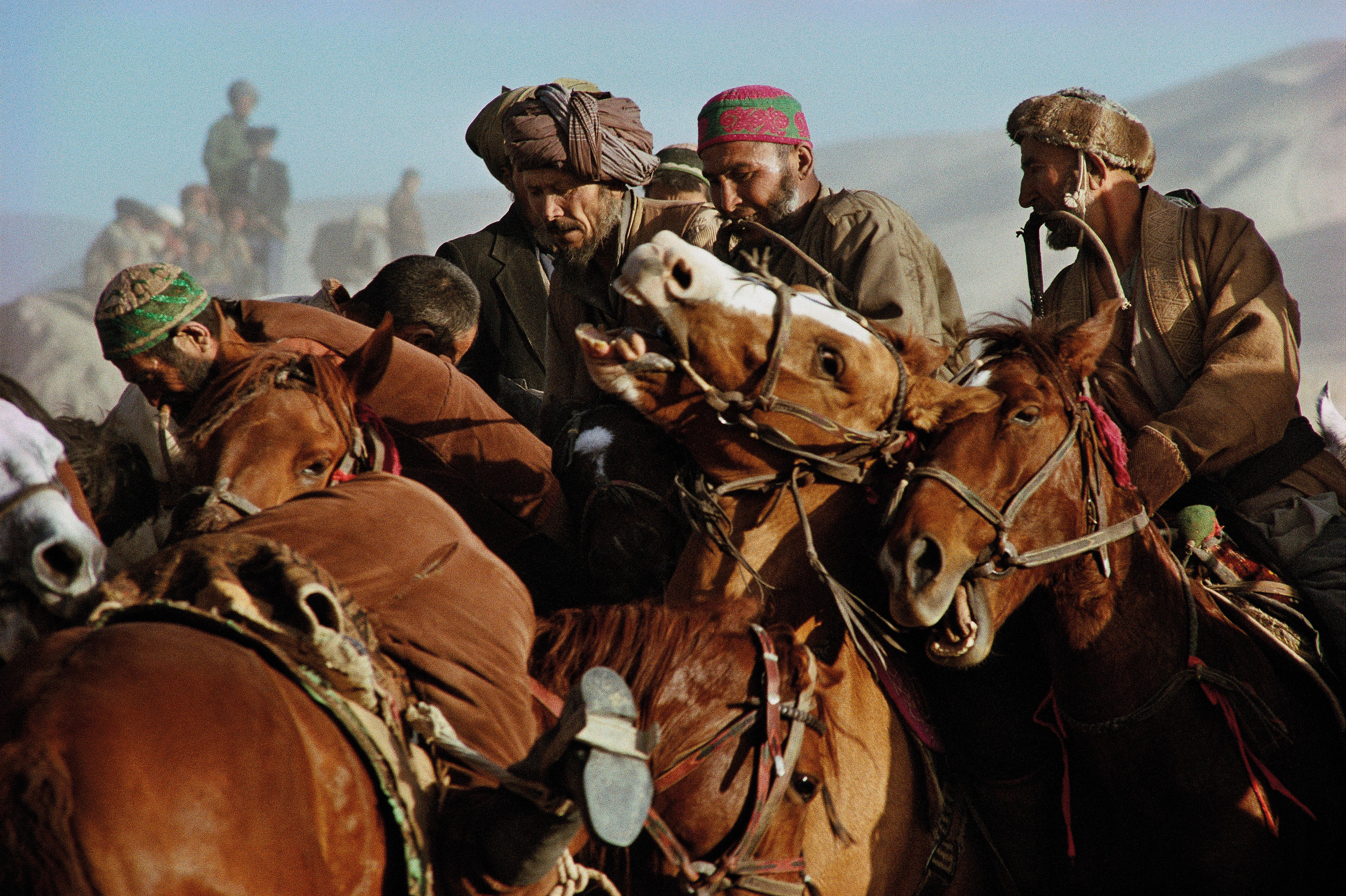
Chaos. Afghanistan, Badakhshan. 1990
For over 2,000 years people in northern Afghanistan have been playing “Buzkashi”. The master of ceremonies, "Buzkashi Raiz", is the judge of the game. A goat, ram or calf serves as a ball. On the night before the game, the throat is cut to the animal, and the headless carcass is placed in a “sacred circle” in the middle of the field. To win the game, grab the animal's carcass by the leg and ride around the entire field, holding the carcass on an outstretched hand, and then put it back in the center of the circle.
In my case, this group of people and animals is often associated with the amazing feeling that I experienced when I first saw “Guernica” by Picasso. I then studied architecture, and my art history teacher showed us this brilliant piece, which became a symbol of protest against the horrors of war.
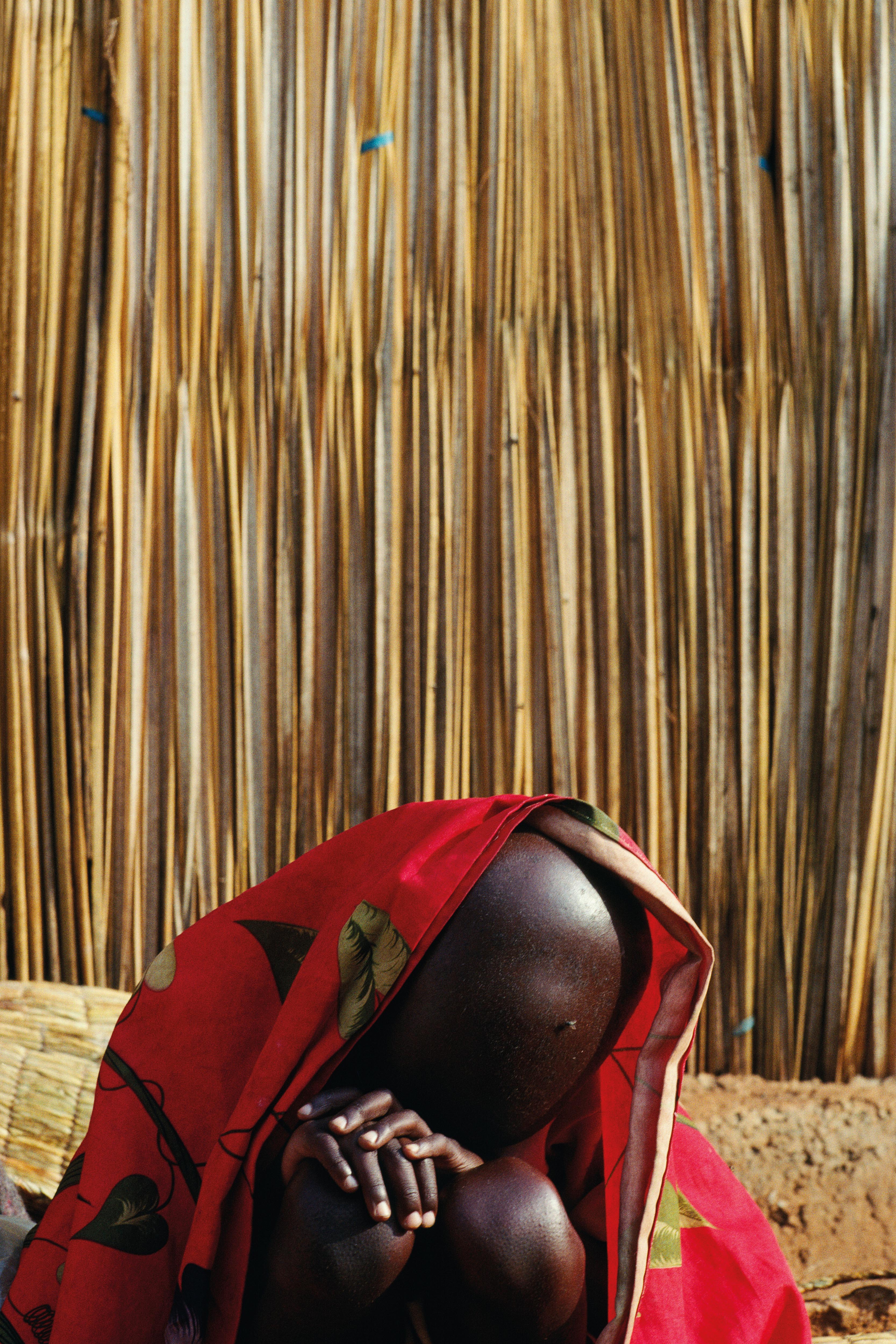
Rwanda 1994
Alfonsina herself told me her story: “I called my son Placid in memory of our love with his father. I was 17 years old when I met him. This happened before the events of 1994, while this land was still not stained with blood ... He was Hutu, and I was Tutsi. When the Hutu extremists began to kill the Tutsi, and the Tutsi had to defend themselves by killing the Hutu, I decided to stay with him, and together we ran to the Hutu. Days and nights I walked, not knowing what lies ahead. Hutu rejected me, but I was happy to be with him. We had a baby. Soon after, his father disappeared.
I no longer belonged to the Hutu refugees; I lost my protector. Then I took Placid in my arms and returned home. But even in my native village we were rejected, as if they wanted to erase the very memory of my love for his father: after all, now Tutsi and Hutu are forbidden to be together. My brother denies my past and wishes to steal my story in order to save his honor. He tells people that the Hutu captured me, raped me and left me pregnant. But in fact, nothing like this happened. Only my grandfather, who became reticent and silent because of the horrors that were happening in our country, loves us and unconditionally supports us. ”
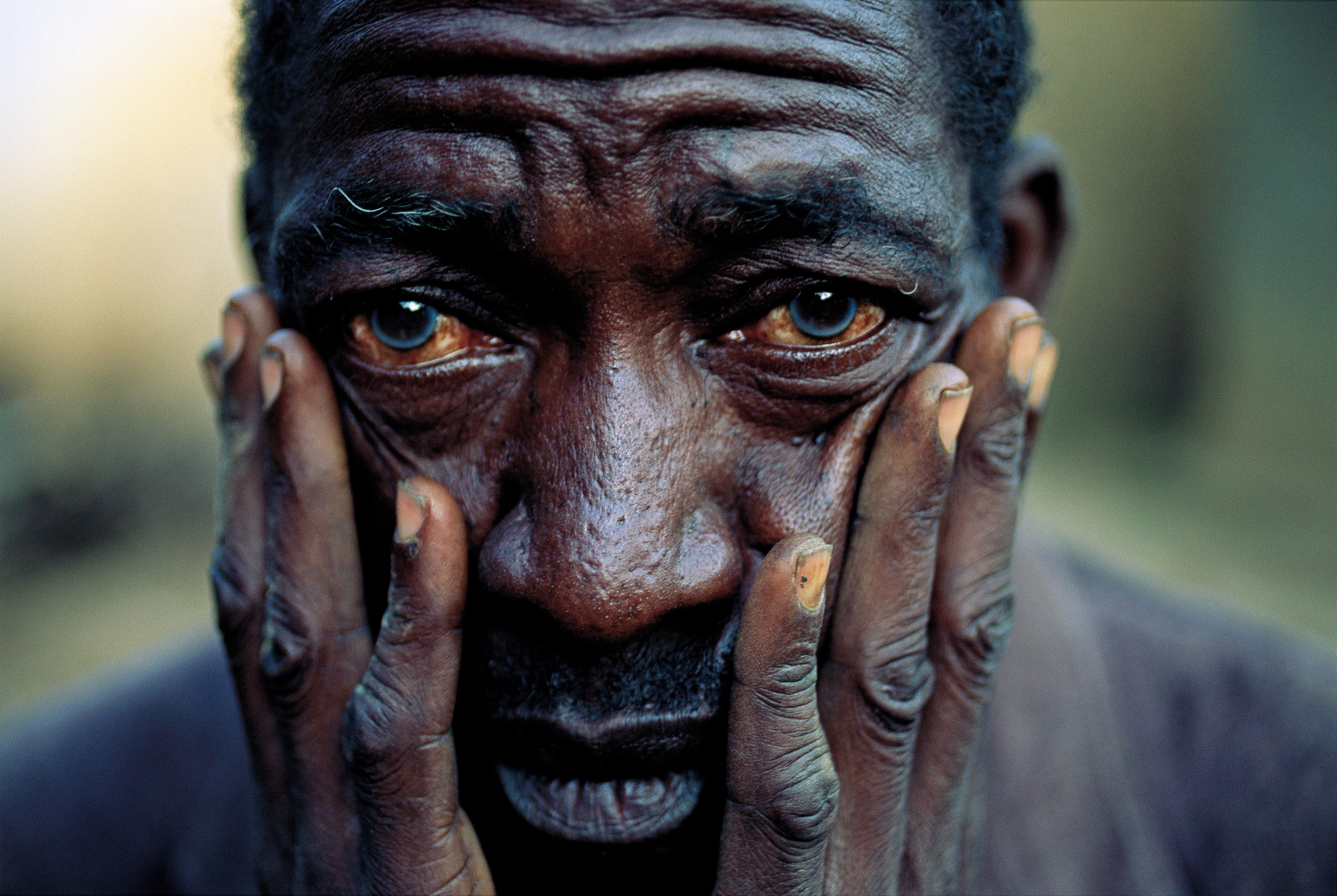
Silence
Rwanda, Kibuye. 1996.
The old man listened to the story of his granddaughter, holding his head. And only the pearls of despair in his eyes betrayed his experiences.
Do you, as a pacifist, believe that any conflict has a peaceful solution?
Yes, I believe it. I believe that if we hold referendums, conferences, even in belligerent countries, people will vote for peace. Because they know that precisely their children will be sent to the front. The generals and heads of large companies will not send their sons to fight, but will promote the war, inspiring patriotism to the people. Peaceful conflict resolution is the only way to a better world. People like Mahatma Gandhi, Martin Luther King, Nelson Mandela, have proven that this is possible.
You said that the future belongs to women. What did you mean?
At the dawn of civilization, many human communities lived in a system known as matriarchy. Then they turned to patriarchy, which now reigns in most communities. Let us assume that money and power attract men more, and most wars are fought for money and power. First, I think that women would not fight for it - firstly because because nature itself ordered them to give life, and not to take it away. And secondly, even in a patriarchal society, men are raised by their mothers. They are the main educators of the society! This is one of the reasons that I spent the last 15 years in Afghanistan teaching Afghan girls journalistic skills, helping them to create a radio station, a women's magazine ... I have no doubt: the more decisions there will be for women, the less cruelty there will be in the world . To fight is a man's business, even in the animal world, most battles are started by males: to attract a female, to occupy territory, to take away food ... In people fighting for riches or power, talks the beastly beginning. It is not without reason that in most military governments, and even in the most democratic, most advanced parliaments, women still do not act on an equal footing with men. One of the surest guarantees of a peaceful future is to give women more rights.
How do you see the world of the future?
There are still places on Earth where people live peacefully, even if statistics say that in 2016 only ten countries on the planet have nothing to do with war. Perhaps in about five hundred or a thousand years, the moment will come when humanity will look around and think: what kind of barbarians were our ancestors to invest so much energy and means in exterminating their own kind, convincing and forcing people to go to war instead of helping them to master useful professions, build schools, hospitals! .. Earth would become a paradise if no one tried to grab a piece of the wealth of their country.
And the key to a brighter future is education. When I go to refugee camps, my main task is to help them get an education: to become photographers, journalists, directors.
And tell stories. Personally, I believe that this can push the world in the right direction. I am not the only one among millions of people who want this. And I believe that everyone is responsible for the world. Therefore, everyone should look back and make sure that with the growth of his welfare does not decrease somewhere else.

